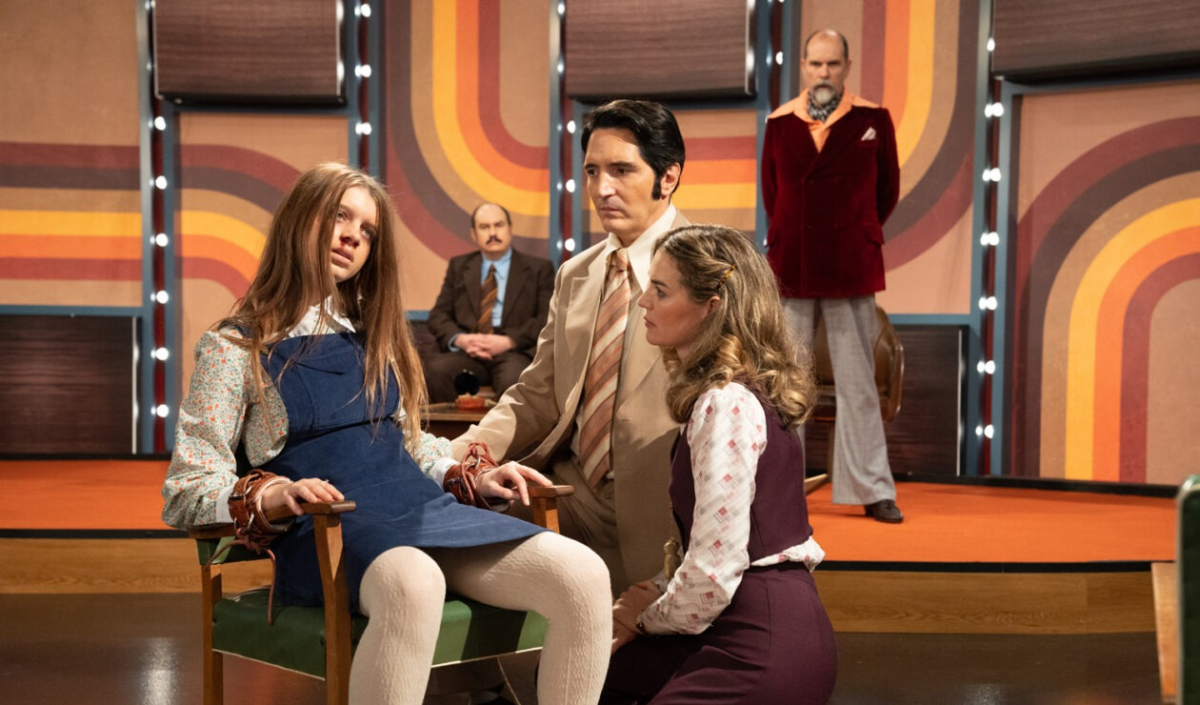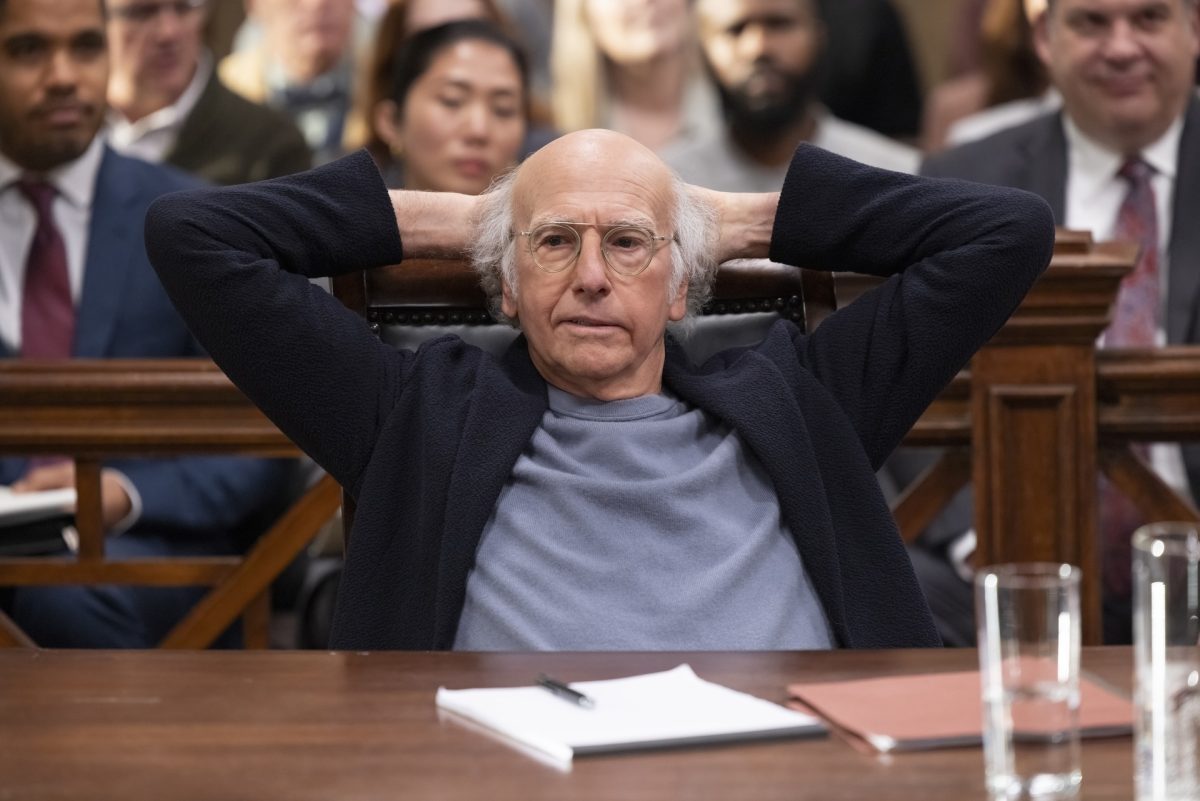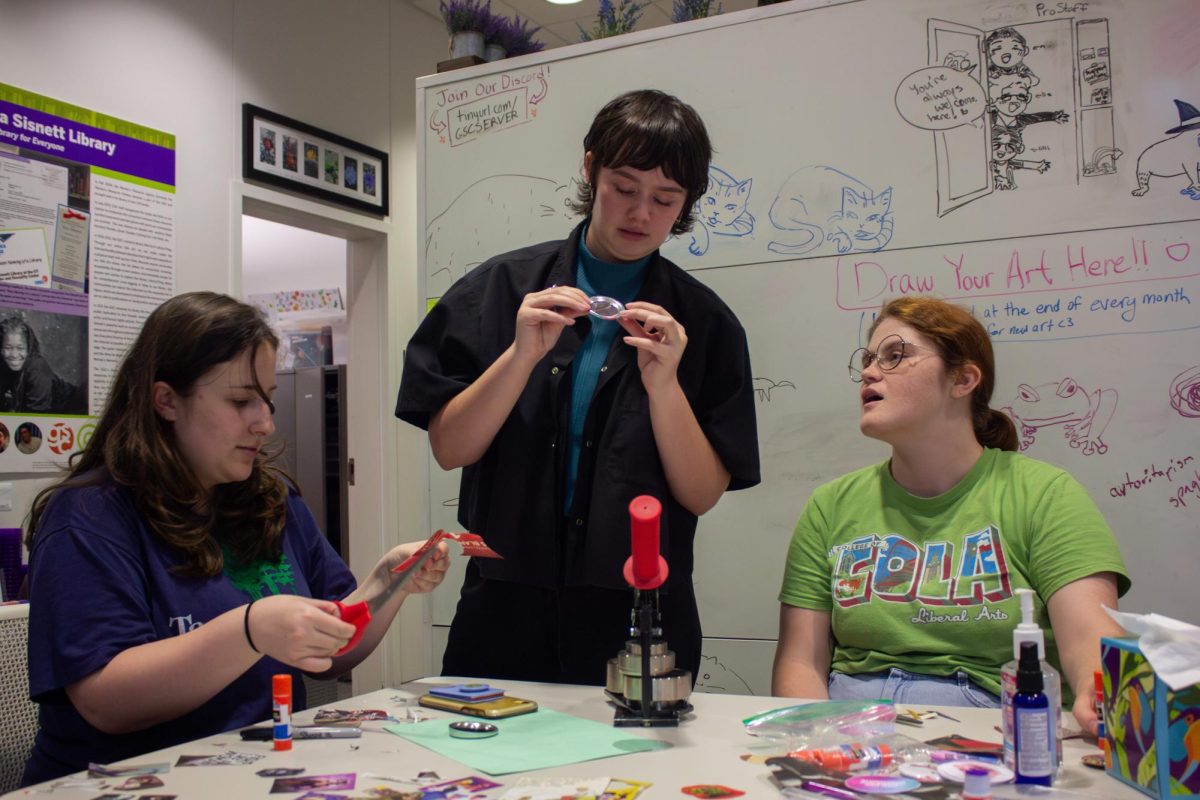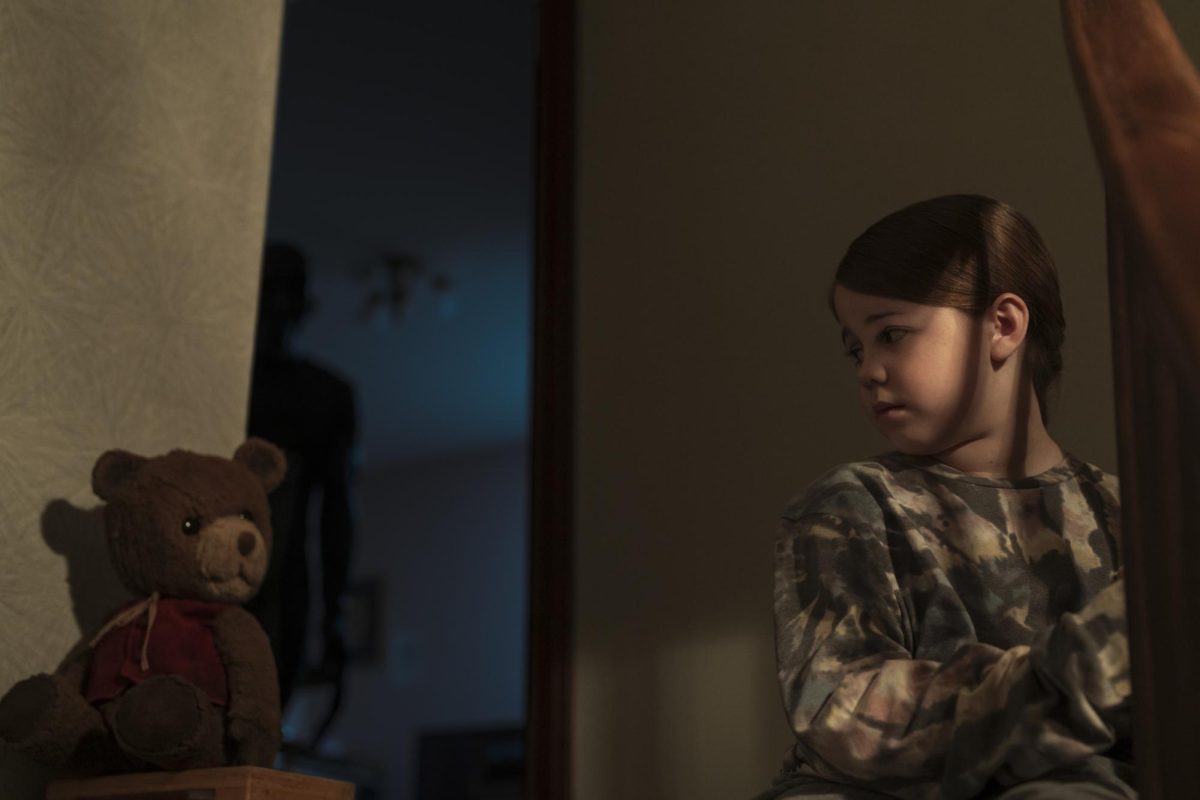It’s been one week since the fifth season finale of “Mad Men” and we’ve pulled together our experts in a roundtable postmortem on Matthew Weiner’s acclaimed ‘60s drama. Spoilers ahead.
THE SEASON FINALE

Katie Stroh: What an incredibly strange episode of ‘Mad Men,’ let alone season finale. Matthew Weiner’s upbringing at ‘The Sopranos’ has never been more evident; that show excelled at anticlimax, and never has ‘Mad Men’ been more anticlimactic, especially considering Lane Pryce’s dramatic suicide last week and the remarkable lack of significant plot developments in the season finale. The only moment that offered any kind of revelation was the episode’s coda: a Heather Graham type approaches Don at the bar, asking him if he’s ‘alone’ and practically begging him to go back to his philandering ways, and then … cut to black.
I can’t decide whether this episode was incredibly disappointing or incredibly brilliant; I’m looking forward to your insight and opinions, as I’m still in a state of bafflement.
Alex Williams: I wrote in our series recap about just how difficult it is to predict what’s going to happen in a ‘Mad Men’ finale, and this episode only reinforced that hypothesis. While ‘The Phantom’ certainly didn’t deliver much of a climax, and was often bafflingly oblique, it was befitting of a season that’s been ‘Mad Men’s’ most ambitious by a long shot. The show has made some bold stylistic choices this year, some of them successful (Sterling’s acid trip), some of them overwrought (Don’s strangle-happy fever dream back in ‘Mystery Date’), and this has often resulted in it losing a bit of its thematic subtlety.
Even so, ‘The Phantom’ had plenty of striking moments, and even managed to wrap up a few story lines. Weiner also took a book from “The Sopranos” in his seasonal structure, letting many of the big events go down in the penultimate episode.
Aleksander Chan: I’m torn between thinking season five as the series’ most masterful or appalling glib. Weiner has helmed this season so that it oscillated between inexactness and broadness, most evident in the finale and Don’s hot tooth.
‘There’s something rotten in you and it’s not your tooth,’ says Don’s hallucinated brother Adam. I can get past the opaqueness of this lame metaphor, but only as far as its ambiguous underlying meaning. What’s rotten? Megan? Don’s old self, his inner Dick Whitman? Repressed mournfulness for Lane’s death? I get embracing uncertainty in storytelling — done right, it can tease the viewer along and maintain tension and stakes.
But here, that tooth underlies how many of the season’s symbolism has been too on the nose. It’s as if in the pages of the script, the messages get bolded, italicized and underlined twice: Those Heinz beans ads trying to target Vietnam protesters (These old folks, so out of touch!); Pete Campbell and his leaky kitchen faucet (Pete Campbell’s no man! But Don is!); Betty’s (benign) nodule (Her listless marriage to Henry might literally kill her!); Don pulling rank on Ginsberg and snowball ad (There’s a snowball’s chance in hell Don will let some wunderkind take his place!) — plot devices laid out in not nearly as subtle a way we’ve known ‘Mad Men’ to do.
And I do think Lane Pyrce’s phantom haunted the finale (that wide shot of the partners in the new offices was like a retro “Ocean’s Eleven” moment), but also specters of the show’s past: that final scene, as Don leaves Megan to shoot her commercial, he cozies up to the bar and lights a cigarette with the same easiness and palpable machismo of his season on self. When psuedo-Heather Graham asks him, “Are you alone?” he is isn’t — the ghosts of seasons past
surround him.
‘FAT’ BETTY

Stroh: Poor January Jones. I’ve always defended her place on the show; it’s true that in other roles, Jones is often wooden at best, but I still hold that something — whether Weiner’s direction, the harmonious match of Jones’ frigidity to her character’s, or perhaps just her stunning good looks — makes January Jones a strangely compelling presence when she steps into Betty’s high-heeled shoes.
Still, Betty remains one of the most maligned characters of ‘Mad Men’s’ world, (next to Pete Campbell, maybe). And now, as a product of the actress’s recent pregnancy, Betty has been imprisoned all the more firmly than she ever was in the Draper home — by that mausoleum of a house, by her ever more matronly wardrobe, and, of course, by that unfortunate fat suit, once worn with so much quiet sadness by Elisabeth Moss’s Peggy. And for all that, Jones barely appeared this season, only popping up in four of the season’s 13 hours and only garnering one major episode arc.
It follows logically that Betty would appear less and less in the show, as she’s taken less of a role in Don’s life. But call me crazy — something has had me rooting for a Don-Betty reunion fling, if Don has to cheat on Megan at all. I kind of miss those crazy kids making each other’s lives a misery.
Chan: Betty’s shorter arc this season made it difficult to sympathize with her and her vengeful lashing out at Don and Megan. Understandable given the terms of their divorce, but the show seemed to go out of its way to make us revile Betty — in her behavior and her body. That gratuitous body shot of Betty rising from the tub was abhorrent, and not because of her weight. It was because you feel Weiner and the show working really hard to make you revile the heavier Betty. I almost buy into her empty and unexciting marriage to Saint Henry and their McMansion as what’s boring her into Weight Watchers and subzero iciness, but the story line was too threadbare to ever going anywhere but mean.
‘THE OTHER WOMAN’ (OR THE JOAN INCIDENT)

Stroh: You know, the entire Joan-as-sportscar metaphor had the potential to be disastrously overwrought and clumsy. “You see? Just as cars are merely objects onto which men project all their mid-life crises and suburban ennui, so too are beautiful women! Joan is a commodity to be sold … just like Jaguar cars!”
But if the analogy itself wasn’t anything all too profound, the execution elevated it to a rapturous level. That entire montage intercutting stone-faced Joan’s five percent partnership prostitution with Don’s own prostituting ad pitch to Jaguar made the blatancy of the “women are just products!” idea practically transcendent.
Chan: Critics have been divided about the sort of streamlined decision making of this episode, where Joan effectively agreed to prostitute herself for the sake of the company to land the Jaguar account. Would Joan, specifically the Joan who had just been abandoned by her husband and struggling and in a place of disillusionment come to such an awful decision in what appeared to be a matter of days? I’m not sure. There was definitely something missing from the whole sequence to me — like they cut out the middle to get the money shot of Joan swelling with disgust as the Jaguar man takes off her coat in the hotel room.
And making Don seem like the good guy by objecting but without any real urgency, or sense of actual responsibility for Joan (let’s be real: Don tried to stop her more to make himself feel better than to actually save her), was gross. But collectively, I thought the episode worked because it ultimately stayed true to ‘Mad Men’s’ modus operandi: the tugging between the desire for who we want to be and who we have to be. ‘The Other Woman’ was that at its most grey.
LANE’S SUICIDE

Stroh: Oh, Lane. Sweetly bumbling, well-intentioned, “chocolate bunny”-loving Lane. How you’ll be missed.
Although the signs that it was still somehow a horrifying shock when Joan opened the door to Lane’s office, only to find it obstructed by … something. And then the realization set in. That moment alone would have been enough to make Lane’s suicide by hanging horrifying, but then having to see Lane’s stiff, purpled face was the most grotesque thing ‘Mad Men’s’ done since the lawnmower incident.
Williams: The aftermath of Lane’s suicide gave us an interesting but fairly standard scene between Don and Lane’s widow, but was ultimately worth it for that gorgeous shot of the five partners gathered in the office space that Lane’s suicide was paying for. His absence was never felt more than in that moment in the sprawling empty office space, but it still felt like he was in there in spirit, having given the firm the finances to definitively expand. In fact, there’s a good case to be made that Lane is the metaphorical phantom who gave the episode its title.
Chan: It was almost Hitchcockian, Lane’s demise. That scene where he has to hold up (one) broken eyeglass to try and fix that shoddy new Jaguar in order to properly kill himself was the definition of tragicomedy. I never much cared for Embeth Davis’ performance as Lane’s wife, but that final interaction between her and Don was a tour de force. “Do you know how the rest of us live?!” she screams at Don, who practically whimpers out the front door of the Pryce apartment. He does, actually, but Dick Whitman has been Don Draper for so long, he’s forgotten how money can just as easily ruin as he found success.
PEGGY’S UPWARD MOBILITY
Stroh: What a conflicting scene it was when Peggy finally got the balls to leave SCDP for bigger things. On the one hand, it was about time Peggy got hers after years of being underappreciated by her mentor Don, her fellow copywriters and the many misogynistic clients she’s served. On the other hand, Don’s final kiss goodbye was completely wrenching, and as Peggy struggled to hold herself together, so did I. I have no doubt that Peggy will return to SCDP at some point, but for now it will be fun to see her stretch her wings and ordering around subordinates over at Ted Chaough’s firm.
Williams: How great was Peggy in these final episodes? The moment where she told Don she was leaving was beautifully played by Hamm and Olsen, and, combined with that episode’s Joan-related events, felt like the end of an era at SCDP, the moment where the firm lost its innocence and heart at the price of success. Even better was the scene between her and Don in the finale, as they serendipitously ran into each other at the movies. It’s the way ‘Mad Men’ pays off small character notes like this that makes it such a special show, and showing them engaging in the same worktime dalliance spells out perfectly how close these two became in their time working together, and how much they still mean to each other. For my money, that was the best scene in a finale that was often too oblique by a mile, a wonderfully measured coda to ‘Mad Men’s’ strongest character dynamic.
Chan: Season five for Peggy was about finding it in herself to finally demand what she wants and not feel bad about it. She didn’t get everything she had hoped for, but it was so rewarding for her character and the viewer for her to try. She couldn’t get Abe to completely commit. And she couldn’t quite elevate herself above liberal well-meaning by fearing Dawn might steal the money from her purse, but she found the tenacity to leave SCDP. Her pride in herself is magnified by our own.
PETE CAMPBELL
Stroh: Pete ignobly defended his title as ‘Character Most Fun to Despise’ this season, as the multiple punches he received to the face are any indication. His cowardly, passive-aggressive persuasions in favor of selling out Joanie to that disgusting Jaguar exec was surely his most despicable, but what really got me this season was the way he treated poor Trudy. It seemed that in the past few seasons Pete and Trudy had one of the healthiest and supportive marriage on the show. Now that they’ve moved to the stultifying suburb of Cos Cob and Trudy’s “let herself go” post-childbirth, Pete seemed to have lost all enjoyment of or respect for his ever-supportive wife, engaging in an affair with the dull, depressive Beth and lashing out at home. No, Pete. You can’t have good everything good all at once, so you better appreciate what you do have, or else you’ll go the way of Mr. Pryce.
Williams: ‘The Phantom’ had plenty of frustrating moments, but surprisingly, the only character whose storyline truly resolved was Pete Campbell, who was forgotten by his fling (one of the season’s weakest links, Alexis Bledel) and came to fisticuffs with her husband. Vincent Kartheiser also delivered a stunningly sad monologue that summed up his character perfectly, and also wrapped up the actor’s strongest season yet. Pete has been at his most compelling this season, thanks to Kartheiser’s unique deployment of equally repulsive and pitiful character details, not to mention his strong knack for getting punched in the face.
Chan: The worst! Campbell was at his most weaselly, spineless self this season. And was appropriately punched for it. But at the same time, there was something tragic about Pete’s bumbling this season. In the same way Dona and Peggy fight for what they want, Pete went about it in all the wrong ways, operating under the assumption it was all owed to him and never earned.
Photos courtesy of AMC TV



















